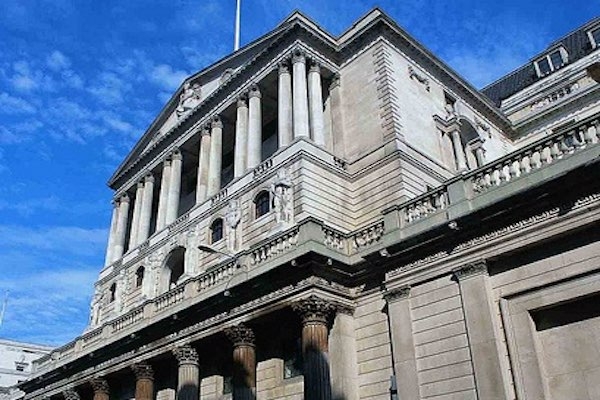The Bank of England’s Monetary Policy Committee has voted unanimously to hold the bank’s base rate at 0.75%.
The decision comes against a backdrop of the US Fed cutting its base rate this week for only the second time since 2008, lowering the target range for its key interest rate from 2% to 1.75%, a 25 basis point cut.
In the UK the MPC decided to make no change to its base rate after news this week that CPI inflation had fallen from 2.1% to 1.7% and GDP growth is weak but the UK should avoid a recession.
The MPS also voted unanimously to maintain the stock of sterling, non-financial, investment-grade corporate bond purchases at £10bn. The Committee also voted to maintain the stock of UK government bond purchases at £435bn.
The Bank says that since its previous meeting the trade war between the United States and China has “intensified”, and the outlook for global growth has weakened.
It says Brexit-related developments are making UK economic data “more volatile”, with GDP falling by 0.2% in 2019 Q2 but now expected to rise by 0.2% in Q3.
In the event of a no-deal Brexit, the MPC warns that Sterling would “probably fall”, CPI inflation rise and GDP growth slow.
Depending on how the markets moved the MPC said its response could be to raise or lower interest rates.
If there were a smooth Brexit and assuming some recovery in global growth, there could be increases in the base rate longer term to return inflation “sustainably” to the 2% target.
Reaction to the MPC’s decision was mixed.
Melanie Baker, senior economist at Royal London Asset Management, said: “In contrast to central banks in the US and euro area, the Bank of England continue to keep interest rates on hold. But this pre-Brexit inaction should not be mistaken for a policy freeze. Despite global and domestic economic developments in recent months, it is not surprising that the Bank of England decided to be cautious.
“There was at least a hint though of a change in policy stance should a further period of Brexit uncertainty drag on demand growth and inflationary pressure.”
Simeon Willis, chief investment Officer at XPS Pensions Group, said: “Despite the wider context of US and European rate cuts, the UK’s situation is quite unique and so holding rates where they are makes a lot of sense for now. But November’s MPC announcement is the one to watch out for. Anything could happen between now and then.”
Phil Smeaton, chief investment officer at wealth manager Sanlam UK, said: “The BoE has painted itself into a corner. An earlier reticence to raise rates now means that it risks the prospect of having to tackle a sluggish economy in an environment of rising prices.
“For now at least, inflation is almost on target so Carney can keep his powder dry.”

